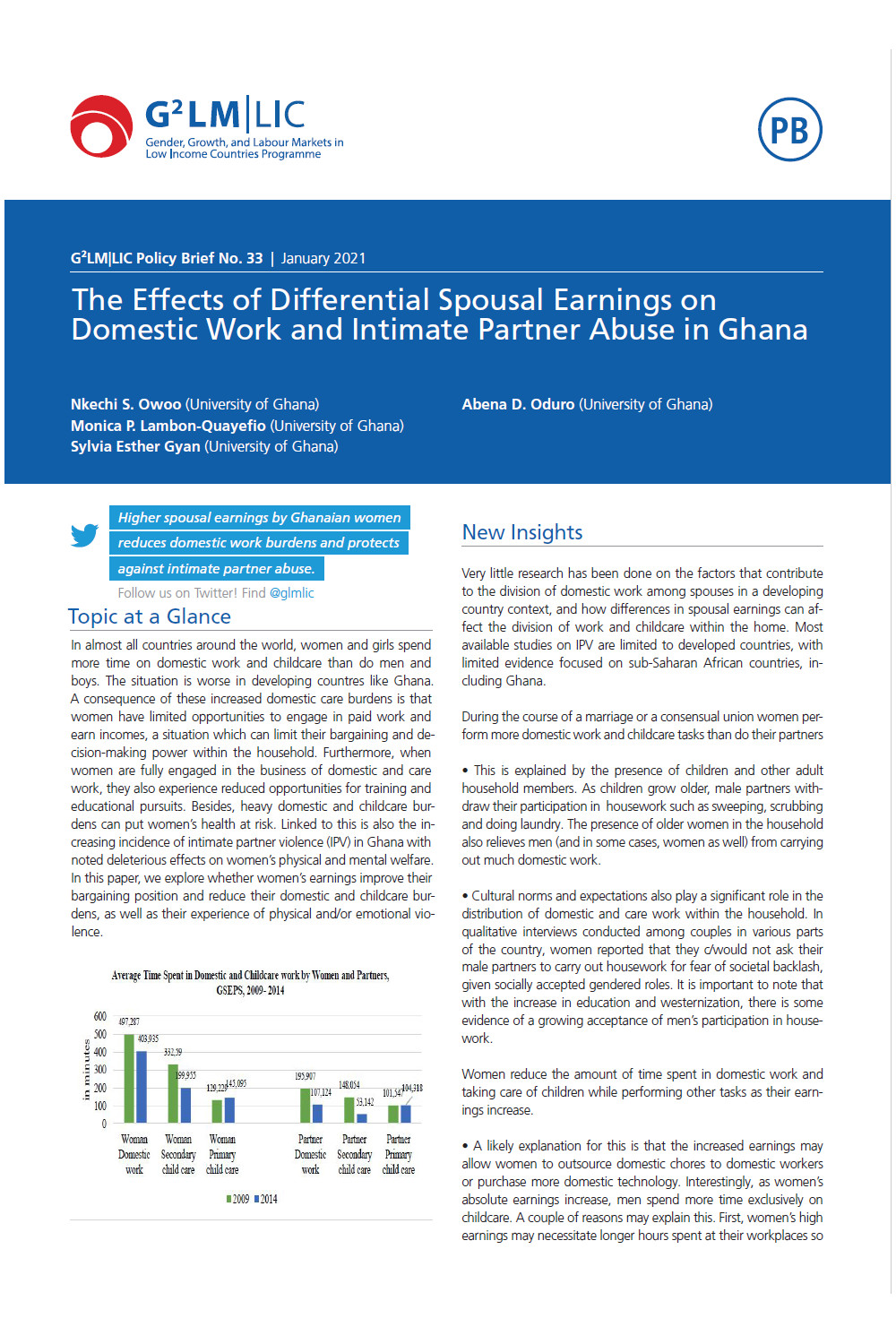In almost all countries around the world, women and girls spend more time on domestic work and childcare than do men and boys. The situation is worse in developing countres like Ghana. A consequence of these increased domestic care burdens is that women have limited opportunities to engage in paid work and earn incomes, a situation which can limit their bargaining and decision-making power within the household. Furthermore, when women are fully engaged in the business of domestic and care work, they also experience reduced opportunities for training and educational pursuits. Besides, heavy domestic and childcare burdens can put women’s health at risk. Linked to this is also the increasing incidence of intimate partner violence (IPV) in Ghana with noted deleterious effects on women’s physical and mental welfare. In this paper, we explore whether women’s earnings improve their bargaining position and reduce their domestic and childcare burdens, as well as their experience of physical and/or emotional violence.

The Effects of Differential Spousal Earnings on Domestic Work and Intimate Partner Abuse in Ghana
- Abena Oduro
- Nkechi S. Owoo
- Monica P. Lambon-Quayefio
- Sylvia Esther Gyan